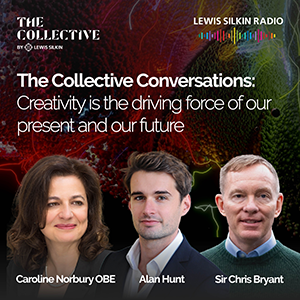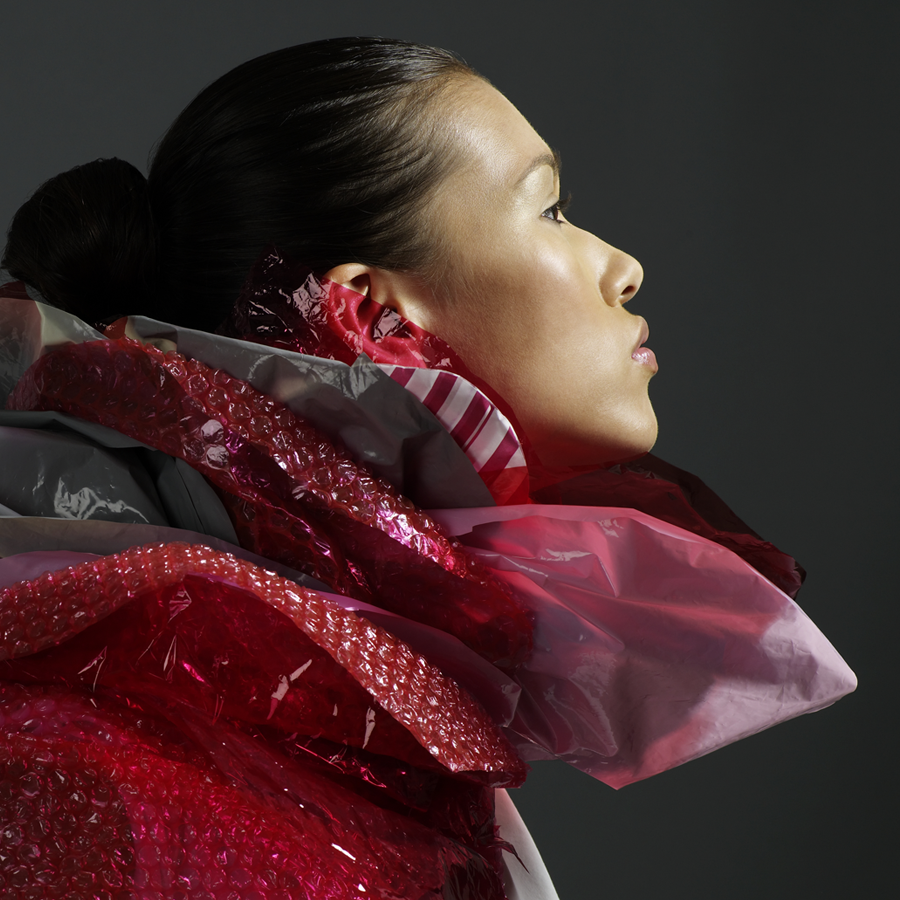“Innovation and change cannot happen in silos, it’s a team sport.”
At The Collective by Lewis Silkin’s xCHANGE 2023 conference, we were joined by guest creatives, innovators, entrepreneurs and policy-makers to explore how the power of ideas can be used to harness the opportunities and skills needed for an innovative future.
The Storytellers by Accenture’s Marie-Shireen Hadid and Vice-Dean of Interdisciplinarity Entrepreneurship at UCL, Ruth Morgan, spoke about the value of leveraging shared experiences, whilst also creating space for the exploration of differing viewpoints, all in the name of collaboration.
And Deputy CEO at the MHP Group, Nick Barron, shared his insight into what happens when, instead of instead of collaboration, we witness increasing polarisation: The rise of the “super-distruster”, a cohort who are increasingly sceptical of consensus and more likely to view institutions as elite and untrustworthy, pose a challenge for businesses and for collaboration alike.
The transformative power of storytelling – Marie-Shireen Hadid
The human brain is hard-wired for stories – we think, dream, and remember in stories. As children, we are told stories to teach us fundamental truths about the world and our place in it. We use stories to find clarity and meaning but, most of all, to create shared experiences between ourselves in the roles of storyteller and listener. Stories, therefore, are powerful tools which we can use to communicate more effectively with others and ultimately, collaborate.
But how does one tell a good story? By using key fundamental elements:
- Pride and purpose: why do you care about the subject?
- The challenge (or opportunity): what is the challenge (or opportunity) you face?
- The plan: what do you need to achieve a solution to the challenge (or to harness the opportunity)?
- The desired destination: where will you end up?
Happy Storytelling!
Read more on The Storyteller’s website.
Disruptive thinking takes a meadow – Ruth Morgan
“Our definition of disruptive thinking is thinking that breaks the normal pattern. It challenges the usual ways things work, not for the sake of it, but to uncover insights and ideas that can create more vibrant communities, better societies, successful businesses and joyful lives.”
Think of a meadow.
A meadow is made up of different plants, flowers, and wildlife with diverse needs and ways of thriving, all co-existing together – just like any organisation, institution, or society at large. The benefit of such a diverse environment is that it encourages diversity – of experiences, perspectives, approaches, and goals.
Be more Bee: by “going into the meadow” and collaborating with others, we can use this diversity to our advantage, like bees moving from flower to flower in order to crosspollinate the meadow, creating a space where there is curiosity and exploration, and where a real thirst for understanding can thrive.
Read more on Ruth’s Disruptive Thinking Blog
The rise of the “Super Distruster” – Nick Barron
The recent polarisation tracker by the MHP Group revealed that nearly one-third (29%) of UK adults are “Super Distrusters” – that’s approximately 16 million individuals. Such a substantial number of people aren’t from a single background; rather, super distrusters span all ages, ethnicities, socio-economic classes, political affiliations, and educational backgrounds.
Super distrusters view themselves as iconoclasts; they are more sceptical of consensus and more likely to view institutions as elite and untrustworthy – motivated by ideological zeal, determined to push through their ideas without consultation or consideration for the impact on people. This can, of course, present challenges. Given the increasing number of super distrusters in the UK, it would be prudent for businesses to engage with, rather than discount these individuals. There are three opportunities in which to bring super distrusters on side:
- Do not attempt to marginalise super distrusters; instead, listen to, and engage with, their concerns in order to build trust.
- Do not dismiss critics who hold concerns about the dystopian power of technology; instead, consider emphasising the role that technology can play in individual empowerment (rather than simply the systemic efficiency of technology).
- Be more transparent about your motives and hold institutions to account on behalf of the consumer.
Download the MHP Polarisation Tracker Wave 6 here.
Click here to access the full report.






















